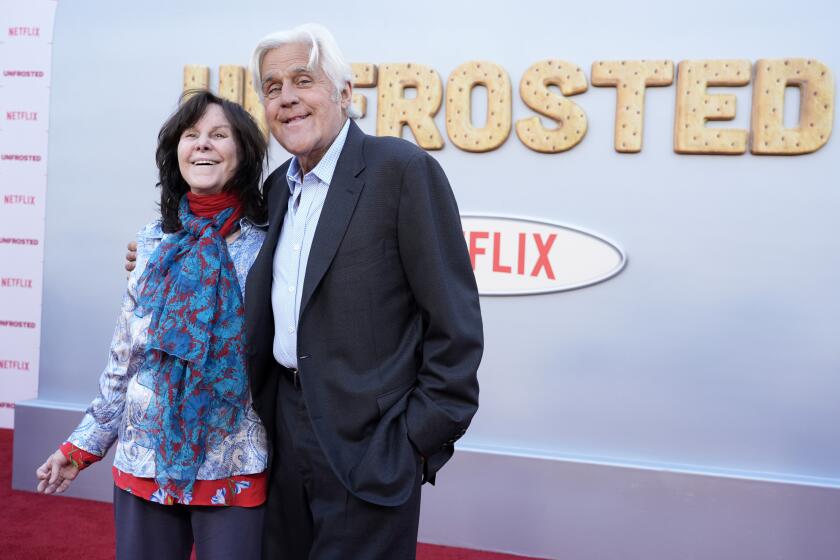Joe Orton’s Farcical ‘Loot’ Still Deliver Decades Later
- Share via
After a brief failed run a year before, “Loot” became a London hit in 1966, when Joe Orton was 33 and mastering his art, rivaling Oscar Wilde as the funniest and most dangerous author of epigrams in the English language. One year later, Orton’s lover, Kenneth Halliwell, beat his brains in with a hammer.
As the critic John Lahr wrote of Orton, “He expected to die young, but he built his plays to last.” “Loot” is a ferocious farce--hard and polished; it is, as its author said of himself, “an acquired taste.” At the Second Stage in Hollywood, “Loot” is being presented by the Blank Theatre Company, one of the smartest small companies around.
The play’s black magic has to be conjured up just right. This is a comedy in which a young man and his pal decide to hide the money they’ve stolen in his unburied mother’s coffin. The body gets tossed around, and the corpse’s false teeth and an eyeball are key comic props. “Loot” doesn’t just skirt the edges of bad taste, it goes crashing through taboos. For Orton, the vacuous piety of the British middle-class and the limitless corruptibility of authority are not targets--they are dead certainties.
Artistic director Daniel Henning always has shown casting savvy. With “Loot,” he hits and he misses. Through the strength of three vital performances, he establishes Orton’s parallel comic universe, a place with so little warmth and so many laughs you may feel the air is thin. But Henning’s “Loot” is also dragged down by the lackluster portrayals of the two young toughs, Hal (David O’Donnell) and Dennis (Tyler Baker). While O’Donnell occasionally has a crisp moment, Baker seems lost. In the better second act, the antics of the two are not as central, and the farce grows wilder by the minute.
The play’s straight man is the timid character McLeavy, who sits hunched in front of his wife’s coffin. As played by the deeply funny Lenny Wolpe, McLeavy’s biggest emotion is a woebegone gratitude when he receives a wreath from “The Friends of Bingo.” He doesn’t know it, but he’s being seduced by Fay, a hired nurse in a suspiciously tight dress who, despite the cross she proudly wears, has the morals of a cannibal at dinnertime. As Fay, Carmen Thomas delightfully sends up the bad girls of film noir with their great figures and greater greed.
*
Enter the mysterious Truscott (the grand and loopy Peter Van Norden), impossibly officious and arrogant. He’s obviously a detective of some kind, but he keeps claiming he’s from the water board. Just what he’s after is unclear; there are any number of crimes being perpetrated in poor old McLeavy’s house.
Henning calls “Loot” a “comedy noir” and underlines the play’s shared concerns with ice-cold, stylish crime films like “Double Indemnity.” He occasionally throws in some melodramatic scoring and lighting. If these touches seem like over-direction, it’s because the comic energy has not been building as steadily as it might. Ideally, we should be giddy enough to absorb anything unusual that might occur.
In “Loot,” the amoral win out spectacularly over the obedient. This is an exhilarating play, but you need a full head of steam to get up to that pinnacle that Orton built. With two linchpins missing, Henning’s “Loot” doesn’t climb the mount, but it nearly arrives at a startling peak.
* “Loot,” Second Stage Theatre, 6500 Santa Monica Blvd., Thursday-Saturday, 8 p.m., Sunday, 3 p.m. Ends June 22. $20-$22. (213) 660-TKTS. Running time: 2 hours, 25 minutes.
More to Read
The biggest entertainment stories
Get our big stories about Hollywood, film, television, music, arts, culture and more right in your inbox as soon as they publish.
You may occasionally receive promotional content from the Los Angeles Times.










